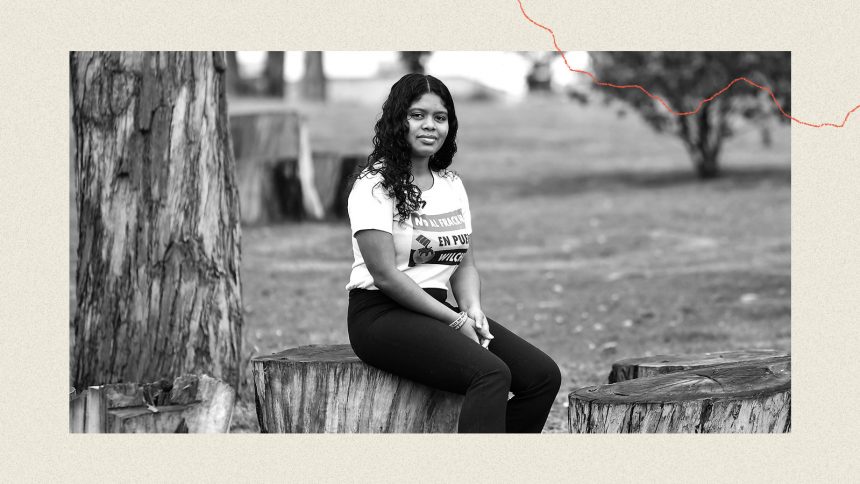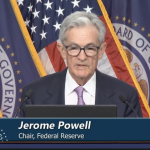“`html
This story is published in partnership with Mutante and El Espectador. It was supported by the Rosalynn Carter Fellowship for Mental Health Journalism in Latin America. Yuvelis Natalia Morales Blanco, a Colombian environmental advocate, received her first death threat at 19. Now 23, Morales Blanco, the public face of the country’s youth-led fight against fracking, finds herself at a crucial intersection: Not only does she live in the most dangerous country in the world to be an environmental leader, but also, according to a 2021 global survey, she belongs to an age group disproportionately affected by the psychological burdens of the climate crisis — a crisis that, in turn, will hit rural communities in the Global South like hers the hardest.
Colombia has been embroiled in a fierce debate over the future of fossil fuel extraction, specifically whether to utilize fracking or hydraulic fracturing, the process of injecting a high-pressure liquid into rocks to extract oil or gas. In 2019, then-President Iván Duque announced four pilot projects to determine fracking’s viability on a large scale — two of which were slated for Morales Blanco’s hometown, Puerto Wilches, a small community in the country’s northeast corner, on the banks of the Magdalena River. Attempts to ban the practice have failed in Congress, and although the projects are at a temporary standstill, they could restart if political winds shift in the 2026 presidential election.
Read Next ‘Living under this constant threat’: Environmental defenders face a mounting mental health crisis In an interview, Morales Blanco, the daughter of a fisherman, details her fight to stop fracking in Puerto Wilches and nationwide, her struggles with mental health following years of persistent threats and violence, and the lack of recognition and institutional support available to environmental leaders.
This firsthand account includes graphic references to violence and self-harm. The interview has been edited for length and clarity.
In 2019, a group of local kids, college students, came and invited [my friends and me] to a meeting. In the eyes of everyone else in town, they were social outcasts. A community leader told me, “Yuve, don’t go. Think about your mother … it’s dangerous.” I didn’t go, but I saw pictures of the event and they had signs that read, “Say No to Fracking.” Fracking? I had no idea. Then, my Facebook homepage started filling with stuff about it and a group called Fracking Free Colombia Alliance started calling for meetings. I started going because I wanted to understand. It touched on everything I’ve always cared about — protecting our biodiversity, our river, and our town.
We were leaving after the second or third meeting, and a man and woman passed by. They saw we were really happy, full of energy, and they told us, “You’re gonna get yourselves killed.” Our mindset changed. It wasn’t a playful thing anymore. I’m from a town where people are killed, and they tally the numbers. The idea of us being little heroes [by being activists, by stopping fracking] crumbled from then on. Doing this work, I discovered abilities in myself that I didn’t know I had — leadership, instant planning, being resourceful. Things that start to awaken in you, I guess, and I said, “This is it.” That’s how Agua Wil, the youth movement against fracking in Puerto Wilches, was born.
We started doing door-to-door promotion, going to all the neighborhoods, and talking to everyone. It was two weeks of almost no sleep. There was never a moment of sadness because there was a very beautiful sentiment, as if of fraternity, very veintejulístico [a reference to Colombia’s independence day on July 20], very of “this homeland that is ours!”
The mayor started to call us for meetings. Then the ombudsman asked us what we were doing and called us “troublemakers.” Rallies began to take place at Ecopetrol, the state oil company proposing the fracking project. At first, I kept my parents out of it, but one time, my mom told me, “You’re not going to these things anymore. I don’t want you to get killed.” Because of this, we thought, “No one’s gonna come to the march.” Who would walk with someone tagged a “guerrilla rebel” in a paramilitary town? But the day came, and as I’m arriving, the bike is turning onto the park, I see a crowd. Tears started streaming down my face. We were just kids who opposed Ecopetrol and ExxonMobil.
The parade was immense. People came from all over — from cities like Bucaramanga and Barrancabermeja, from universities, those against fracking in the mountain town of Cajamarca in the páramo, and those who opposed it in the nearby town of San Martín. National and international media were there. It was December, so we transformed Christmas carols into protest songs. It was the innocent beginning.
On December 24, at midnight, the government and Ecopetrol still signed the contracts for the fracking pilot projects. It was such a downfall. In Congress, they realized what had happened and we got an email that said, “Dr. Yuvelis, you’re invited to join the public hearing on fracking.” My friends from Agua Wil told me, “You’re the one who has to do it. People identify with you, and you speak so beautifully.” The hearing was January 29, 2021. I was nervous. There is no internet at my house, so I went to a friend’s. I had such a crappy connection that I couldn’t turn on the camera. They introduced me as “Dr. Yuvelis Natalia,” and the first thing I said was, “First of all, I’m not a doctor” — I went in with irreverence from minute one — and I started talking. I said that even though we [Puerto Wilches] had been an oil-producing town for more than 70 years, we did not have a quality education system, we did not have a decent hospital. Public safety was nonexistent. We were a town bringing wealth to an entire nation that turned a blind eye to us. Then, in the end, I said: “Centuries ago, you came, you traded us a mirror, and we gave you all the wealth. Today, that gold is water, and we are not going to give it up for little mirrors.” For better or for worse, everybody started to talk about it — they had never had this type of testimony from Wilches, much less from a woman, much less from a young woman, much less from a Black woman. Threats began that same day.
At night, around 9 or 10, I was at home watching TV and eating something. My mom was at work. It was only my little sister and me. I lived on a main street, so there was always a lot of traffic. I heard a motorcycle stop in front of our home. I was sitting on a rocking chair with my legs up, when suddenly I saw a man standing next to me. I stood up instantly. My hair was super long, and he stroked it and said, “You’re very pretty. It would be a shame if something were to happen to you. Stop fucking around with that fracking stuff because we will kill you.” It happened in the blink of an eye, but to me, it lasted for hours. I felt very abused. They had touched me, they had invaded my space, they had entered my house.
After I made sure my sister was okay, I locked the front door. I laid her down next to me. I didn’t sleep that night. When dawn broke, I started crying. I wrote Héctor, a member of the Alliance and part of a human rights organization called Credhos. He said, “Tell the rest of the group.” They said, “Go to Barrancabermeja [the nearest city], and file a police report.”
My mom asked where I was going. I never told her. When I arrived at Credhos (Corporación Regional Para La Defensa De Los Derechos Humanos), the first thing Iván, its president, did was to hold me. He said, “Everything will be alright.” It was as if I had…
“`






